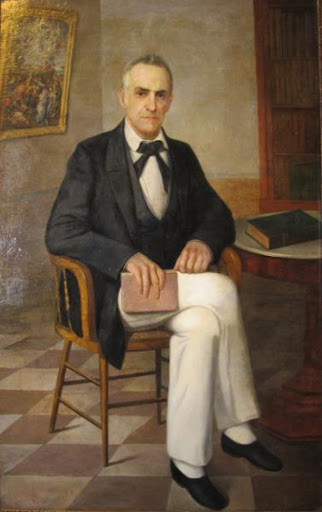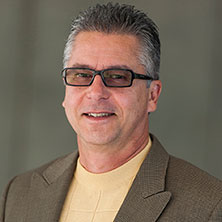 A workshop on one of the leading intellectuals of 19th century colonial Cuba, José de la Luz y Caballero (1800-1862), whose teaching influenced many outstanding Cuban thinkers of his time.
A workshop on one of the leading intellectuals of 19th century colonial Cuba, José de la Luz y Caballero (1800-1862), whose teaching influenced many outstanding Cuban thinkers of his time.
Among his works are an annotated translation of Volney’s Travels in Egypt and Syria (Paris, 1829); Siegling’s Public Prisons and their Reforms, from the German (1837); and numerous memoirs and pamphlets on educational, scientific, and philosophical topics.
Luz y Caballero earned his degree in philosophy in 1817 at the Real y Pontificia Universidad de San Gerónimo in Havana, and a degree in law at the Seminario de San Carlos. From 1837 to 1841, he travelled extensively in North America and Europe, meeting a number of important intellectuals of the time, including Sir Walter Scott, Goethe, Humboldt, the the German naturalist, and German philosopher Karl Krause, who paid a public tribute to his scientific and philosophical views.
The workshop will be led by Dr. Vicente Medina, Professor of Philosophy at Seton Hall University. Followed by a conversatorio with audience participation via Zoom.
This historical presentation is part of the CreateNYC Language Access program, and it will be held in Spanish.
DUE TO THE COVID-19 PANDEMIC, IT WILL BE STREAMED THROUGH OUR YOUTUBE CHANNEL.
PLEASE CLICK HERE TO JOIN THE EVENT ON THE SCHEDULED DATE AND TIME:
Vicente Medina, Ph.D., is professor at the Department of Philosophy at Seton Hall University. His areas of specialization are social and political philosophy and applied ethics. He also works on Latin American philosophy. His most recent publication is his book Terrorism Unjustified: The Use and Misuse of Political Violence (Rowman & Littlefield, 2015). Some of his most recent articles are “The Philosophical Polemic of Havana Revisited,” Inter-American Journal of Philosophy, 4 (June 2013); “The Innocent in the Just War Thinking of Vitoria and Suárez: A Challenge even for Secular Just War Theorists and International Law,” Ratio Juris, 26 (2013); and “Militant Intolerant People: A Challenge to John Rawls’ Political Liberalism,” Political Studies, 58 (June 2010). He is presently working on a paper on John Rawls’ political philosophy and the justification of terrorism.
at Seton Hall University. His areas of specialization are social and political philosophy and applied ethics. He also works on Latin American philosophy. His most recent publication is his book Terrorism Unjustified: The Use and Misuse of Political Violence (Rowman & Littlefield, 2015). Some of his most recent articles are “The Philosophical Polemic of Havana Revisited,” Inter-American Journal of Philosophy, 4 (June 2013); “The Innocent in the Just War Thinking of Vitoria and Suárez: A Challenge even for Secular Just War Theorists and International Law,” Ratio Juris, 26 (2013); and “Militant Intolerant People: A Challenge to John Rawls’ Political Liberalism,” Political Studies, 58 (June 2010). He is presently working on a paper on John Rawls’ political philosophy and the justification of terrorism.
This event is supported, in part, by public funds from the New York City Department of Cultural Affairs.